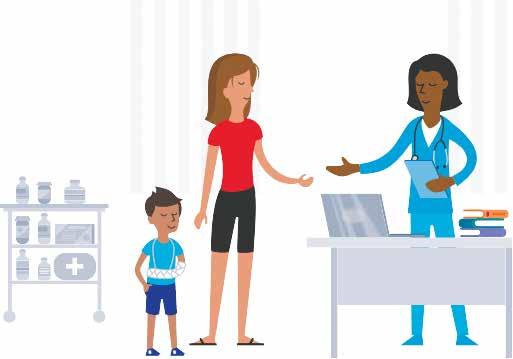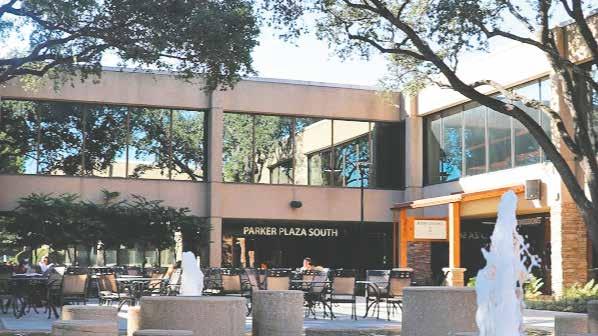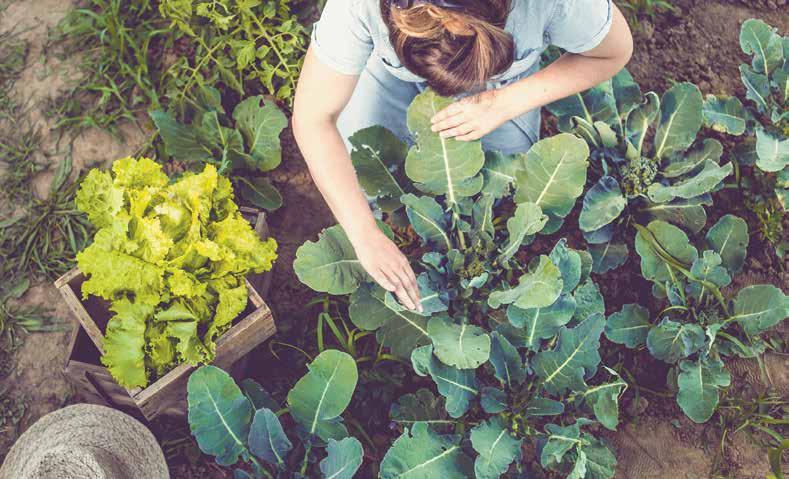
14 minute read
NORTH TEXAS FERTILITY
NORTH TEXAS FERTILITY ACUPUNCTURISTS
Acupuncture, the ancient Chinese medical system that has addressed energy points and meridians for thousands of years, is constantly gaining new attention and popularity in the medical community as it compiles an impressive body of science-based evidence for its efficacy.
Advertisement
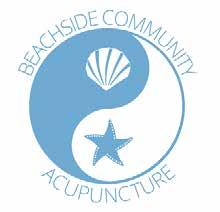

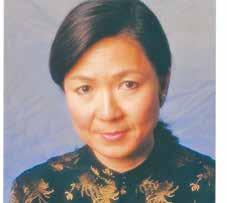
ACUPUNCTURE FOR WOMEN
Jane Liu , Licensed Ac., M.D. (China)
6380 Lyndon B. Johnson Fwy. Ste. 180, Dallas 75240 3010 Legacy Dr., Suite 400, Frisco 75034 Acupuncture4Women.net 214-662-2267 or 214-893-4321 Fertility acupuncturist and herbalist, specializing in infertility with age 40+, POR, RPL, IVF preparation, endometriosis, PCOS, fallopian tube obstruction, miscarriage prevention, recurrent pregnancy loss, elevated FSH level, ovulatory defects and more. With a masters degree in gynecology, Dr. Liu teaches and writes extensively and has helped more than 1,000 women conceive in the past 10 years.
BEACHSIDE COMMUNITY ACUPUNCTURE PLLC
14330 Midway Rd., Ste. 205, Farmers Branch BeachsideAcupuncture.com
(214) 417-2260
Named “Best Acupuncture in Texas” 2019 and “Best Acupuncture in Addison” 2019 and 2020, Beachside offers holistic treatments on a sliding scale of $45-$65 for new patients and $30-$50 for follow-ups so that everyone can heal with Chinese medicine. Relax in our beach-themed clinic while the needles do their work!
INTEGRATED CENTER FOR ORIENTAL MEDICINE
Iva Peck
5924 W. Parker Rd., Ste. 100, Plano 75093 ICFOM.COM
972-473-9070
More than 35 years of clinical experience in TCM. Integrating functional medicine and homeopathy in women’s health and fertility; Identifying fertility issues in both male and female. Pioneer in treating fertility issues since the mid 1980s in this area. Extensive background enables me to help with pre and postnatal care and overall maternal health.
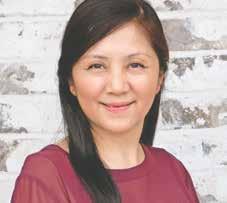
YIN’S ACUPUNCTURE & HERB CLINIC
Xie Yin, Licensed Acupuncturist, MD (China)
5899 Preston Rd., Ste. 801, Frisco 75034 YinsClinic.com
972-668-26262
With more than 30 years of experience in acupuncture and herbs, Dr. Yin specializes in fertility acupuncture, providing effective, all-natural, non-surgical, drug free solutions for fertility issues, including IVF and IUI success rate improvement; anxiety and stress management and much more. One of the best acupuncture clinics in North Texas, helping hundreds of women.
HEALING FROM GRIEF
Four Ways to Find Peace
by Jasmin Jenkins
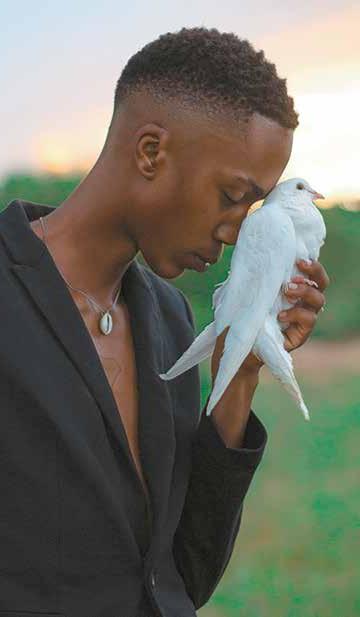
When I was 13, my mom was diagnosed with ovarian cancer. At 15, I was at her graveside, navigating my first experience with the other side of love: loss. Ten years later, my beloved and only brother died tragically as a result of PTSD and untreated addiction. In a word: suicide. Where my mom’s death silenced me, my brother’s death pushed me into a deep pursuit of healing.
In the nine years since then, I have committed to discovering the light side of grief, to identifying and embracing the invitations that lay within its deep layers. What I’ve come to learn is that grieving is actually a renewal state—a cycle of releasing and reconnecting. The tears and sadness are, quite literally, just a more fluid connection to love. These are the four invitations I’ve found within the grief:
1The invitation to pause When someone we love dies, our whole world changes in an instant and forever. And with this disruption, there is an opportunity for sacred inquiry that arrives as we pause and honor the absence of our loved one: the impressions they made on our lives, what we will miss about them, how we will continue to celebrate their lives and what their story taught us.
kissedbythegods/Pexels.com
2The invitation to connect with our breath
With the intensity of emotions surrounding loss, breath can serve as our anchor. Simply remembering to close our eyes and breathe allows us to stay grounded in our body, mind and spirit. In the TED talk “Breathe to Heal,” Max Strom explains how certain patterns of breathing can actually change how we feel.
3The invitation to feel Elizabeth Kübler–Ross taught us about the five stages of grief, but since everyone’s story and process is so unique, there is ultimately no linear order of the stages. If an emotion arises, allow for it. Feelings, after all, are just information about the state of our heart. The more we can give ourselves permission to be with where we are in our grief, the more at peace we will be in our process.
4The invitation to heal Healing is a verb requiring action and commitment. We have to allow for the pain to heal, also remembering that in doing so, we must keep our hearts open. We have to ask for help when healing, because most of us can’t heal in isolation. Therapists who specialize in grief, online grief courses, bodywork and support groups can help us move forward.
Zen Buddhism reminds us that the obstacle is the path. By exploring these invitations, we arrive at the truth that grief is actually a sacred pathway into a deeper connection within our hearts.
Jasmin Jenkins is a Los Angeles-based integrative grief guide and the founder of Fall Up, which supports people navigating the spectrum of grief. Learn more at WeFallUp.com.

North Haven Gardens Cultivating Dallas Gardens for 70 years
by Sheila Julson
North Haven Gardens was started in 1951 when Ralph and Muriel Pinkus founded the business in what was then a sparsely populated area of Dallas. What began as a small landscaping and nursery operation has blossomed into a full-service garden center, providing an array of plants, seeds, supplies and resources for indoor and outdoor gardening. It has thrived, despite being reduced to rubble after an EF3-level tornado ripped through the Dallas area on October 20, 2019.
“We held a ‘survivor sale’ with any salvageable plants, pots and garden supplies that were salable. The community turned out in droves,” says North Haven Gardens General Manager Cody Hoya. During the year-plus rebuilding process, the center remained open for business, operating from tents and temporary greenhouses.
“That experience gave us a rare opportunity to address longstanding issues with the property,” Hoya says. “We had a unique slope to the property—we were famous for, ‘If you let go of your shopping cart, it will roll away’— but the slope has been corrected in most areas, and we improved efficiency in the way the plants are laid out.”
North Haven Gardens’ ingenuity during their rebuild has served the public during the pandemic in what Hoya describes as an “exploding” interest in gardening. “It’s uncovered how disconnected the modern consumer can be from the seasonality of fruits and vegetables in a normal growing environment.”
Supplemental Gardens for Small Spaces
Hoya says anyone with a bright, sunny sill can use equipment such as window greenhouses to plant seeds and start a small garden. “Seeds are one of the most efficient and economical ways of starting plants indoors,” he explains. Small transplants can also be used for certain herbs and edibles.
Some Jiffy Brand windowsill gardens have plastic dishes and lids, along with a seeding tray, potting soil or peat pellets and organic fertilizer. These kits allow people to grow basic lettuce, radish sprouts and microgreens. Hoya emphasizes that a windowsill herb or edible garden is unlikely to sustain an individual or a family. “But it can bring a nice additional touch to the things you are eating. You can add microgreens to salads, smoothies or even pizza. They bring nutrition, crunch and flavor.”
Culinary herbs can be grown indoors year-round. “You want bright light and a container with good drainage—a common error is to put something in a decorative pot that doesn’t have drainage. It gets waterlogged,” he explains. “You can also bring potted annual herbs like parsley indoors when the weather gets cold. Those herbs can be pinched and harvested throughout the winter.”
For nonedible plants used in home décor, Hoya says that houseplants were a trend even before the pandemic. Since the pandemic, plant collectors want to green their spaces and improve air quality; a trend reminiscent of the 1970s.
“Some of the favorite plants used for purifying indoor air are what we consider ‘old school’ houseplants like pothos ivy, classic green jade and what we call the ‘goofproof’ houseplants for beginners, because they’re very forgiving,” he says. “The snake plant, known by the genus sansevieria, include mother-in-law’s tongue. They are bright succulents good for indoor air purification.” Hoya also recommends fiddle-leaf fig, a decorative plant that’s tricky to grow, but popular for indoor décor and air quality.
Outdoors, small balconies or urban yards can offer space for supplemental herbs and vegetables. When choosing gardening areas, Hoya suggests evaluating sun exposure and daylight hours. “We consider six or more hours of direct sunlight to be full sun, but lots of herbs will grow in partial sun, which is three or four hours of direct sunlight,” he says.
Because the North Texas climate is so variable between hot and cold, Hoya says it’s also important to consider the time of day sunlight falls on planting space; a space that get five hours of direct sun between 1 and 6 p.m. during July can reach up to 110 degrees, whereas the hours between sunrise to noon are ideal, because it’s shaded from scorching afternoon sun.
“Consider if you will, planting inground or in containers,” Hoya adds. “Modern horticulture has produced lots of varieties of classic vegetables like cucumbers and watermelons that used to take up lots of space, but we’ve developed hybrids—not GMOs—such as patio or ‘celebrity’ tomatoes that have been hybridized to remain compact and more suitable to balconies and small urban spaces.”
North Haven Gardens maintains a popular online month-by-month reference planting calendar. Hoya also recommends engaging with local plant groups for advice.
Located at 7700 Northaven Rd., in Dallas. For more information, call 214-363-5316 or visit NHG.com. See ad, inside front cover.
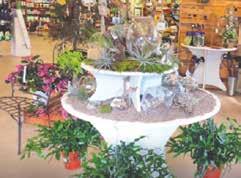
Jeff Tkach on Regenerative Healthcare
by Patricia Trenchak
For over 70 years, Rodale Institute— a pioneer of the organic food movement—has championed the concept of farming without herbicides and pesticides by funding and supporting scientific studies and education. Now entering his fifth year with Rodale Institute, Chief Impact Officer Jeff Tkach is committed to upholding the legacy of the Institute’s founder, J.I. Rodale, who believed that healthy soil equals healthy food equals healthy people. According to Tkach, farmers and healthcare professionals need to embrace a prevention-based approach to human and environmental health, and Rodale Institute is here to bridge the gap between these two industries by unlocking the transformational power of regenerative healthcare.
How did your personal journey lead you to explore regenerative healthcare?
In 2016, I experienced a tremendous health collapse in my own life. I went through six conventional medical doctors and $50,000 in medical bills. I had been a highperforming businessperson up until that point, and found myself on medical leave, bedridden and unable to work. I sought out a doctor who practiced something called functional medicine, which focuses on finding the root of whatever caused the breakdown in health. After numerous tests, it was discovered that I had chronic Lyme disease. The doctor explained that there was nothing he could prescribe that was going to instantly make me better. Through my work with him, I had to look at my body as a whole system and came to realize that food is medicine. Ultimately, alternative modalities like acupuncture and IV [intravenous] therapy, as well as food healed me.
What is regenerative healthcare?
It is a system in which farming and healthcare work together focused on a prevention-based approach to human and environmental health. Instead of using toxic chemicals to farm, regenerative healthcare aims to prevent disease through an organic, plant-based, whole-foods diet. Regenerative healthcare begins on farms that work in harmony with nature. At Rodale Institute, we see ourselves as a human health organization, not an agricultural organization. We use agriculture as a tool to promote human health. Our goal is to build the first brick and mortar facility in the world, called the Regenerative Health Institute, that will connect medical doctors and farmers. The facility will be a 333acre certified organic farm in Kutztown, Pennsylvania, that will provide innovative research on the links between farming and human health. We’re going to be doing scientific research that demonstrates the link between soil health and the health of people, and we’re going to educate and train tomorrow’s doctors to become more literate in agriculture and to understand how they can use food as medicine.
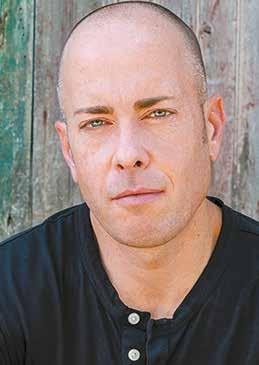
How can we harness the power of regenerative organic farming to foster good health?
The current mode of farming is systemically broken, and farmers need to move in a healthier direction. The science is showing that elements in pesticides and herbicides are known carcinogens that are wreaking havoc on our immune systems. They are ubiquitous in our air and drinking water. Farmers are no longer able to control where those chemicals land. They’re leaching into our groundwater, killing the life in the soil and causing major soil erosion. Ultimately, they’re causing imbalances in nature of mass proportion.
How can you convince people to adopt organic and consider food as medicine?
We need to encourage people to get to know a farmer. There are incredible regenerative organic farmers in our own communities that oftentimes don’t have access to mainstream markets. During the pandemic, we saw a major increase in sales directly from farms to consumers. When the supply chains in the grocery stores broke down, we turned to farmers. That’s profound. As a result of the pandemic, 22 million new gardens were planted in the United States, according to the National Gardening Association. We need to keep that going. It’s very exciting to be a part of this movement as people around the world come to understand the importance of food as medicine. I truly believe that regenerative healthcare is the key to healing our planet.
For more information, visit RodaleInstitute.org.
Patricia Trenchak writes for KnoWEwell, a Regenerative Whole Health Community platform and a collaborative partner of Natural Awakenings Publishing Corp.

researchers found that commuters enjoyed similar cardiorespiratory improvements regardless of whether they used an electric bicycle or a conventional, non-motorized model. With the power assist, e-bikers were able to cycle at higher speeds and climb hills more easily, which also proved to be highly motivating.
Safety Tips
Plug and Pedal
The Benefits of Using Electric Bikes
Gas-guzzlers are the worst of vehicles, emitting harmful pollutants and using up non-renewable natural resources. An Earth-friendlier alternative for work commutes or pleasurable neighborhood spins is the e-bike, powered by pedaling and an electric motor. Reaching maximum speeds of 20 to 28 miles per hour and costing $400 and up, an electric bicycle offers a more scenic and easier ride that gets us to our destinations without trashing the planet.
Environmental Benefits
Health-Friendly Commuting
E-bikes are a great way to bring some physical activity to an otherwise sedentary lifestyle. In a 2018 study, Swiss Pay attention to traffic. Many car drivers may not expect a biker to reach 20 or more miles per hour. Ride defensively. Be visible. Outfit the bike with lights and a bell and wear eye-catching clothing. Start slow. Get a feel for the bike’s capabilities at lower speeds before cranking it up. Give it a brake. With the added speed and power, slowing down well ahead of stop signs, lights and road crossings is a must. Be careful on the mount and dismount. An e-bike is about 20 pounds heavier than a regular bike, so a step-through frame might make good sense, even for men. Wear a helmet. According to the U.S. Centers for Disease Control and Prevention, head injury is the most common cause of death and serious disability in bicycle-related crashes.
Zero emissions. Electric bikes run on clean energy, eliminating the devastating carbon emissions associated with cars, vans, trucks and motorcycles. Long-lasting power. The batteries last for years—much longer than traditional types. They don’t contain lead and can be recycled. Easier on roads. Bikes are considerably lighter than larger vehicles and cause much less damage to infrastructure.
Smile For Health!
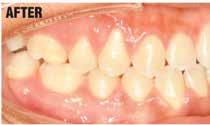
Herbs are the friend of the physician and the pride of cooks. ~Charlemagne

Functional and Beautiful Smile for A Healthier Body!
• We avoid bicuspid extractions • We offer non-surgical Orthodontics for jaw surgery cases (e.g. open bite, under bite, jaw deviation)
elineortho.com ElineOrtho.com
Holistic & integrative approach to treat TMJ dysfunction cases Call Today (972) 242-2040
3550 Parkwood BLVD Building E, Suite 101 A • Frisco, TX 75034

